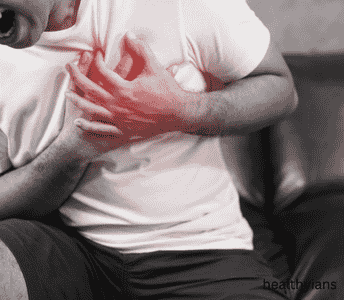Problem: Chest pain can feel scary, and when it hits, your mind races. Is it your heart? Is it something else?
Agitate: Many people panic when they feel tightness, pressure, or pain in their chest. While it can be a warning sign of something serious, sometimes it’s caused by things that aren’t dangerous.
Solution: Let’s break down the most common reasons your chest might hurt and when it’s time to call a doctor.
Table of Contents
Common Reasons for Chest Pain
1. Heart Problems
Heart attack: This happens when blood flow to the heart is blocked. Signs may include pressure in the chest, shortness of breath, and pain in the arm, neck, or jaw.
Angina: This feels like squeezing or tightness in your chest when your heart isn’t getting enough oxygen-rich blood, often during stress or exercise.
Pericarditis: Swelling of the tissue around the heart that can cause sharp pain, often worse when lying down.
2. Lung Issues
Pulmonary embolism: A blood clot in the lung can cause sudden, sharp chest pain and trouble breathing.
Pneumonia: An infection in the lungs can make your chest hurt, especially when you cough or breathe deeply.
Collapsed lung: This happens when air leaks into the space between the lung and chest wall, causing sudden pain and shortness of breath.
3. Digestive Troubles
Heartburn: Stomach acid moving up into your food pipe can cause burning chest pain that might feel like a heart problem.
Gallstones: These can cause pain under your ribs that spreads to your chest, often after eating fatty foods.
Swallowing problems: Issues like esophageal spasms can make it feel like there’s tightness or pain in your chest.
4. Muscle and Bone Causes
Chest wall strain: Overdoing it at the gym, heavy lifting, or even bad posture can strain chest muscles and cause soreness.
Costochondritis: Inflammation where your ribs meet your breastbone can cause sharp, aching pain that gets worse when you press on the spot.
5. Anxiety and Panic Attacks
Feeling anxious or having a panic attack can cause chest pain that feels tight, with fast breathing, dizziness, and a racing heart. It can feel so real that people often think it’s a heart problem.
When Should You Get Help?
If you have chest pain along with any of these signs, get medical help right away:
-
Trouble breathing
-
Sweating a lot
-
Feeling dizzy or faint
-
Pain that spreads to your arm, neck, jaw, or back
-
Nausea or vomiting
Better safe than sorry — it’s always okay to get checked out.
How to Feel Better
Depending on what’s causing your chest pain, these tips might help:
-
Rest and avoid overdoing it
-
Try deep, slow breathing for anxiety
-
Take antacids for heartburn
-
Use a heating pad for sore muscles
-
Follow your doctor’s advice if you have a heart or lung problem
FAQs
1. Can heartburn feel like a heart attack?
Yes, heartburn can cause burning chest pain that feels like heart trouble, but it usually gets better with antacids and doesn’t spread to the arms or jaw.
2. What does anxiety chest pain feel like?
It often feels like tightness, sharp pain, or pressure, sometimes with fast breathing, dizziness, and a racing heart.
3. Should I go to the hospital for chest pain?
If you have chest pain with shortness of breath, dizziness, or pain in your arm, neck, or jaw, get medical help right away.
4. Can muscle strain cause chest pain?
Yes — lifting heavy things, coughing a lot, or sleeping in a weird position can strain chest muscles and cause soreness.
5. What is costochondritis?
It’s swelling of the cartilage where the ribs attach to the breastbone, causing sharp chest pain, especially when you press on the area.
Conclusion
Chest pain can be a warning sign, but it’s not always life-threatening. It might be from heart, lung, muscle, stomach, or anxiety problems. Pay attention to how you feel and don’t be afraid to get help if you’re worried.






